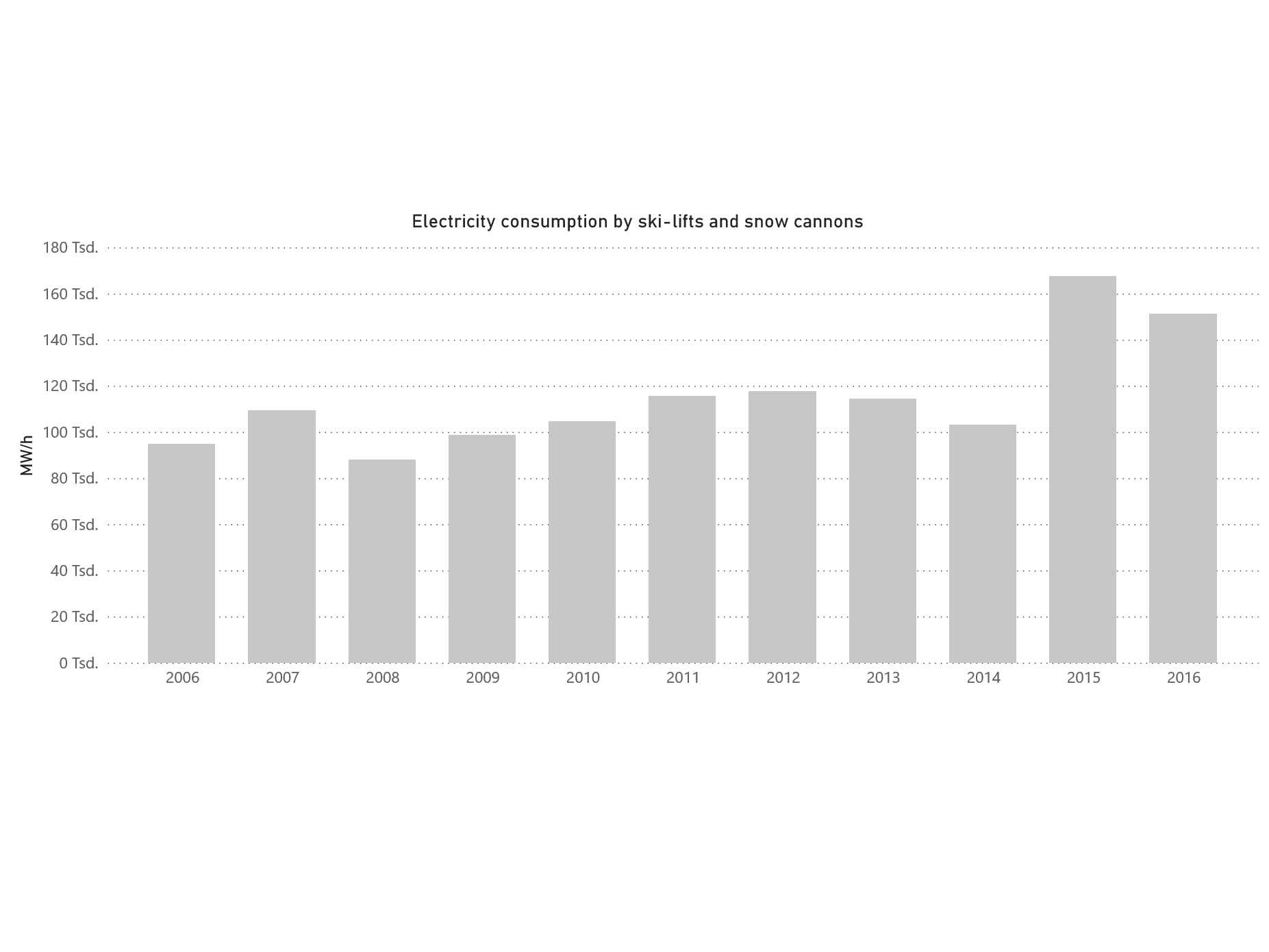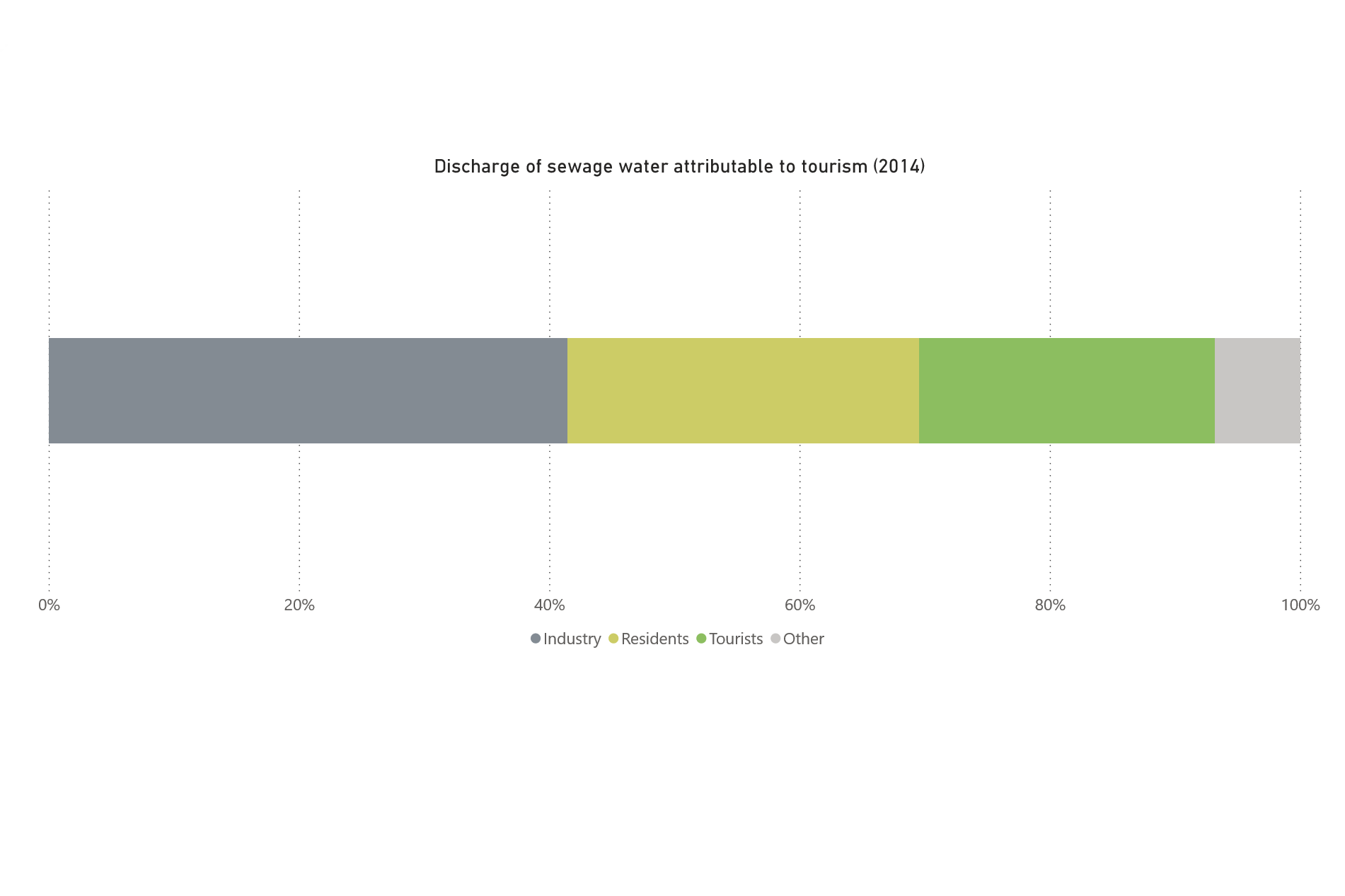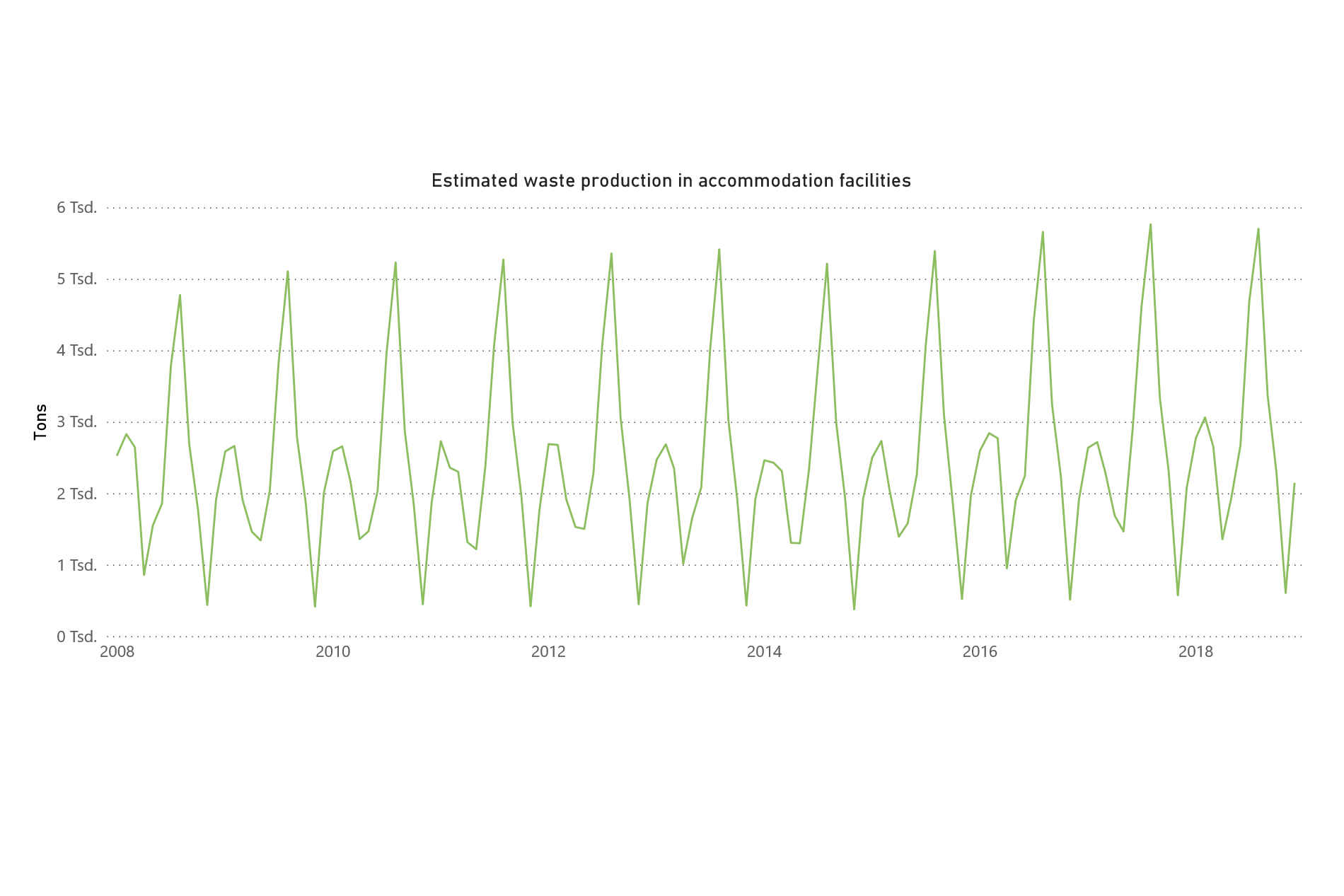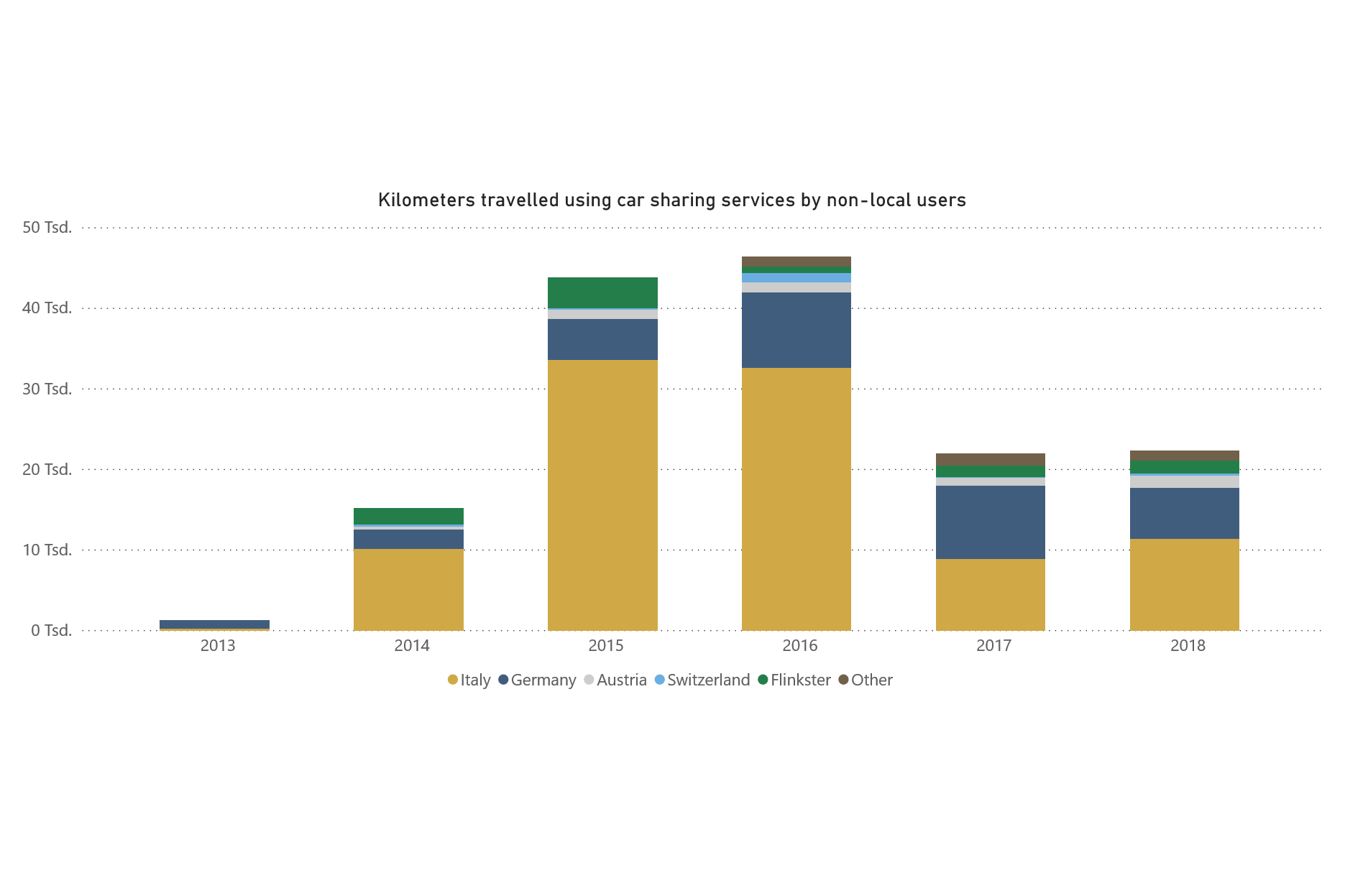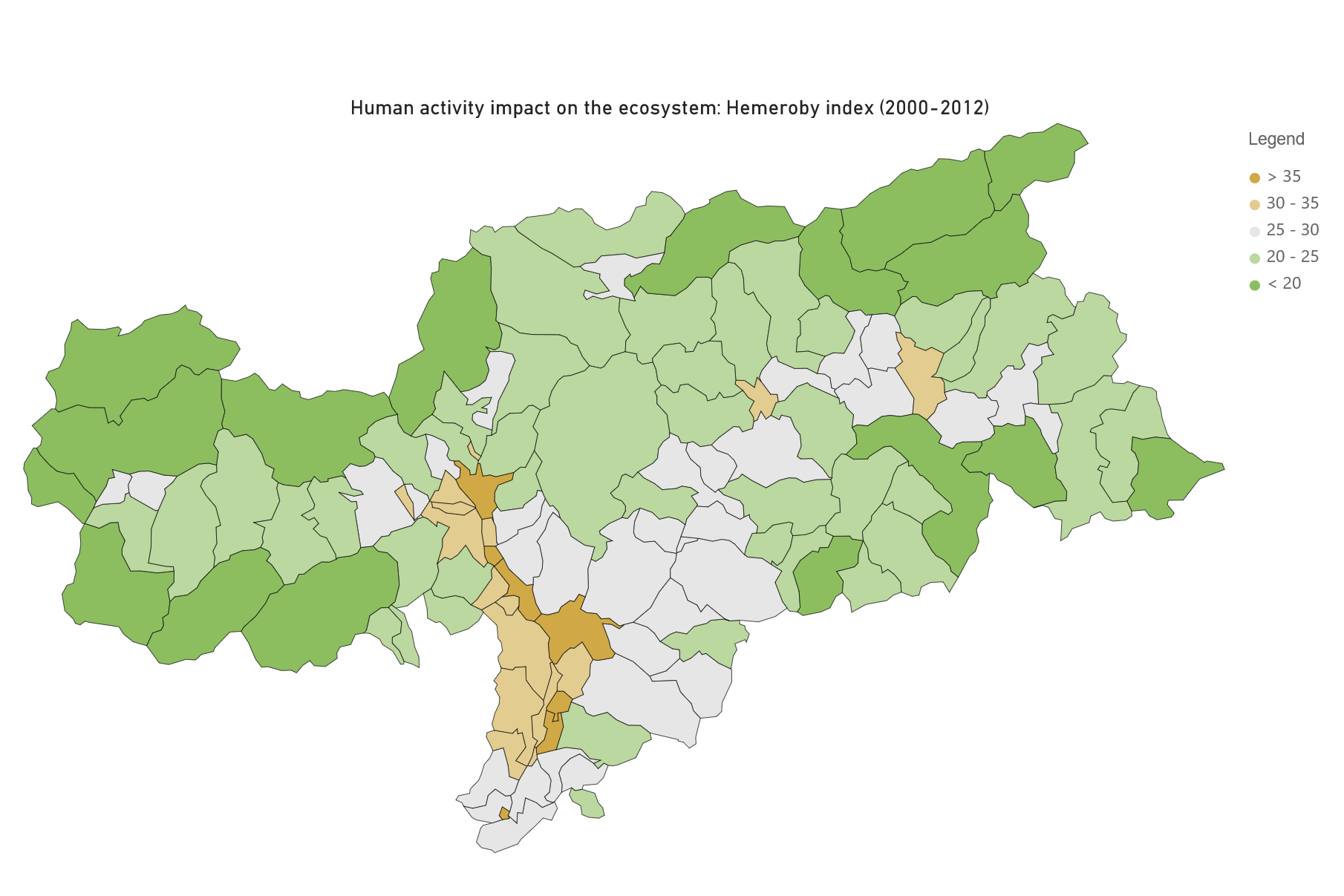Various tourist activities, for example skiing or golf, require large amounts of water.
Fresh water is an essential resource for tourism, as it is consumed directly by tourists, for example for hygienic purposes, but also by the hospitality industry, for the irrigation of gardens, to fill up swimming pools and supply wellness and spa facilities, and for cleaning rooms and washing bed and table linen. Moreover, it is linked to many leisure activities, such as golf and skiing1Gössling, 2015.
Due to climate change, which causes reduced snowfall and a greater evapotranspiration, water is an increasingly scarce resource in South Tyrol2Zebisch et al., 2018, and in the future, there might be cross-sectoral conflicts for its use, for example between tourism and agriculture in rural areas. Monitoring the consumption is therefore essential to foresee and warn local stakeholders against potential water shortages and stresses.
However, data on tourism-related water use largely unavailable. Thus, we estimate water use in accommodation facilities using literature-driven coefficients specific for each hotel category. We also included available data for water consumption by snow guns, as water cycle for snow making and technological advancement.
MORE ABOUT ENVIRONMENT

Energy Management
An increase in the number of tourists leads directly to an increase energy consumption in the destination. If the quality of tourism increases, the demand for luxury services increases, which in turn increases average energy consumption of a tourist.

Wastewater Management
A high concentration of tourism in certain months of the year can lead to overloading of water treatment plants.
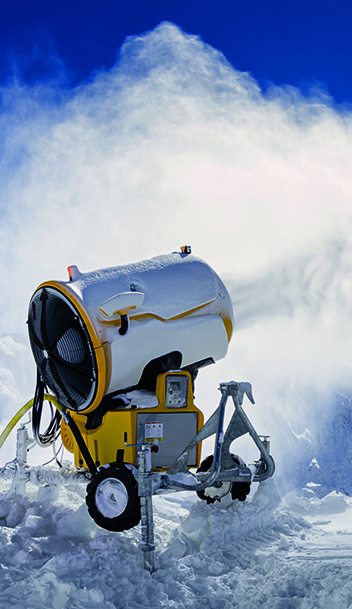

Waste Management
Sorting waste is more complicated in tourism, due to the use of single-dose products, but also due to tourists’ lack of knowledge of the specific rules for the separation of waste.

Mobility
In high season, individual mobility generates congestion and pollution, creating discomfort for residents and tourists.

Nature Conservation
The presence of protected areas guarantees greater sensitivity to the environment and more nature-friendly forms of tourism.


